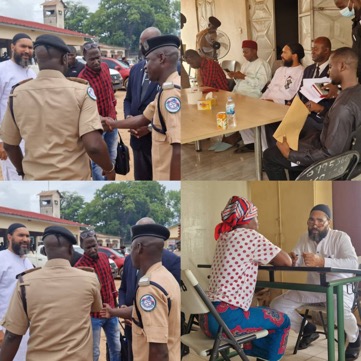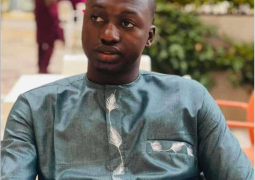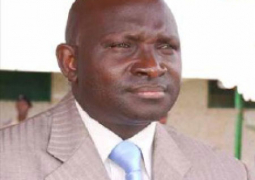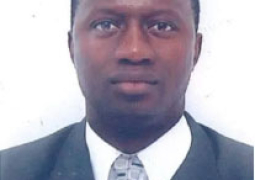
Honourable Omar Cham, the Master of the High Court together with two judicial support staff was part of the visit. The visit was conducted on Friday, 12 July 2024.
The prison visit committee was established by Chief Justice Hassan B. Jallow during the 2023 Legal Year with the mandate to visit and audit the remand wings of the prisons and also cases of prisoners every six months and report to him on instances of prolonged detentions and recommend remedial measures accordingly.
On Friday, the Committee on Performance of Judicial Accountability on the prisons visited Mile II to advise the Chief Justice on the status of the inmates remanded in Mill II.
During the interactions, the inmates told the judicial authorities that they face difficulties in accessing court records to appeal decisions.
Omar Cham, the Master of the High Court informed them that they have employed 14 new typists to address the problem. He said they would be stationed in Bundung and their work would be mainly on typing.
It was noted that some of the inmates were charged at the Magistrates’ Court and were transferred to the High Court because the lower courts lacked the power to try those cases.
However, after the transfer, these people would be remanded in Mile II but their cases would not proceed in the High Court because the case files are not transferred.
They would stay with the police while the inmates live in Mile II without their cases being heard at the High Court. It was discovered that some of the inmates have spent so many years in detention without appearing in the High Court.
It was noted that some of the case files were lost. Some of the inmates claimed that they had never been taken to the High Court based on the claim that they were searching for their misplaced files and detained without hope about their fates.
The interviews also revealed that almost 20 inmates are having issues with mental health but they were mixed among the other inmates. Some of them were taken to a psychiatric facility but were returned to Mile II.
Prison authorities informed the judicial committee that some of the mentally ill people were returned after setting fire at the psychiatric centre.
Lamin Jallow is a mentally ill person who has never appeared in court. Pama Jara Bah has been in detention for four years without a court appearance.
It was discovered that some of the inmates’ cases could not proceed because of the lack of diligent prosecution. The inmates complained that the prosecution lawyers and the defence lawyers were the reason for the prolonged detention of their repeated absenteeism. Some of the detainees have been undergoing trial for nine years, 10 years, 11 years, and 20 years without an end.
Some of the inmates said they do not have access to judgments delivered in their cases. They raised concerns that it makes it difficult for them to understand the court’s decision and decide whether to appeal or not.
Other sections of inmates said they did not have lawyers to represent them and they could not file their appeals. Justice Jaiteh told them about the National Agency for Legal Aid (NALA), but the inmates replied that they did not have any idea about NALA.
Detained soldier, Lance Corporal Sanna Fadera, who was detained for staging a coup against President Adama Barrow also raised a concern to the Committee. The convict said after his sentencing the prosecution filed an appeal and on their first appearance, the Court of Appeal informed the State to put their house in order.
He added that since that day, which is over half a year, he has never appeared in court. He stated that he has an intention to also appeal against his conviction. Justice Mahoney told him that he could appeal on his own. Justice Ebrima Jaiteh advised him to balance the situation before filing an appeal because the Appellant Court can add, subtract or maintain the decision of the High Court.
Some of the inmates informed the committee that they would be on trial for one year to four years while in detention. In the end, the court would convict them for six months or a year. This means the duration they spend in prison is more than their sentence terms. This is why the courts would discharge them on the day of sentencing.




